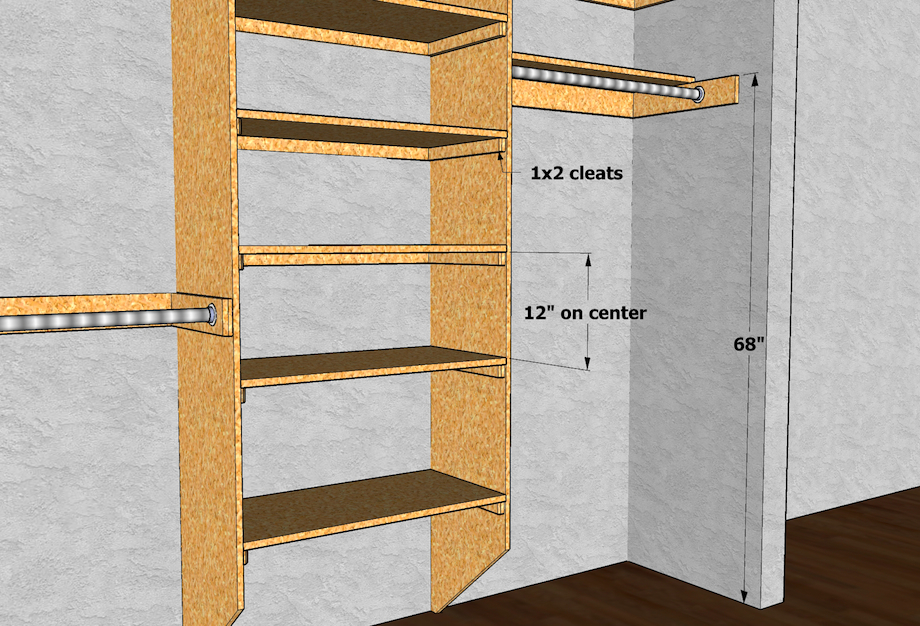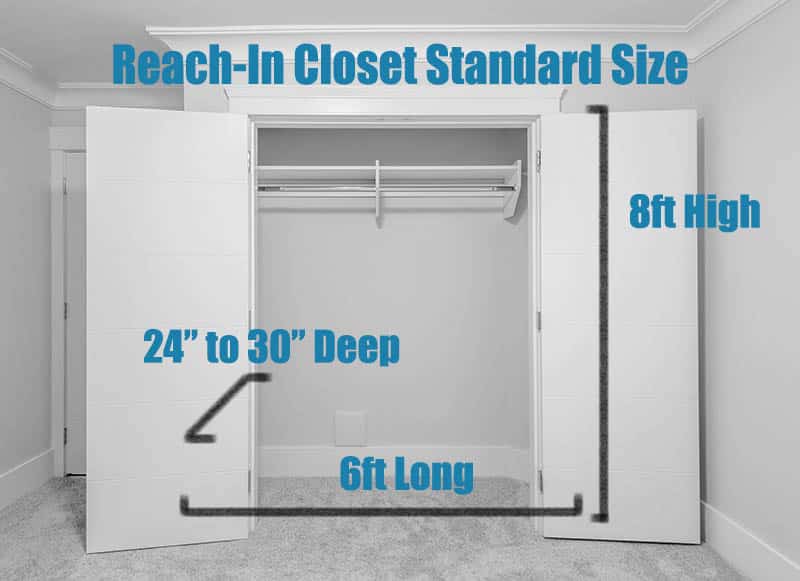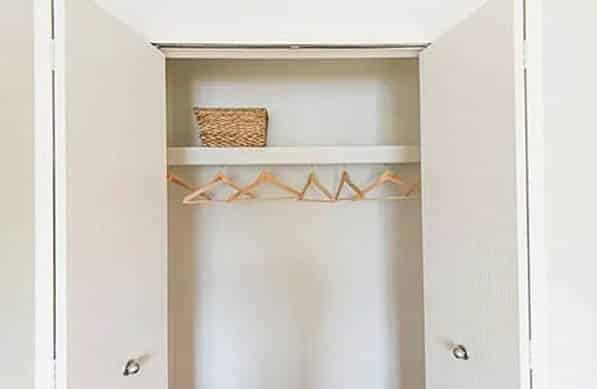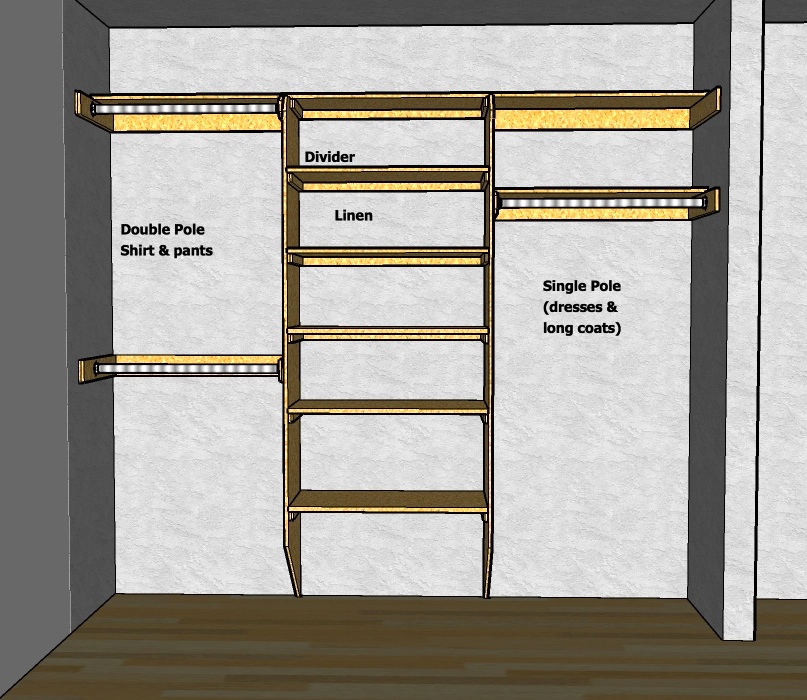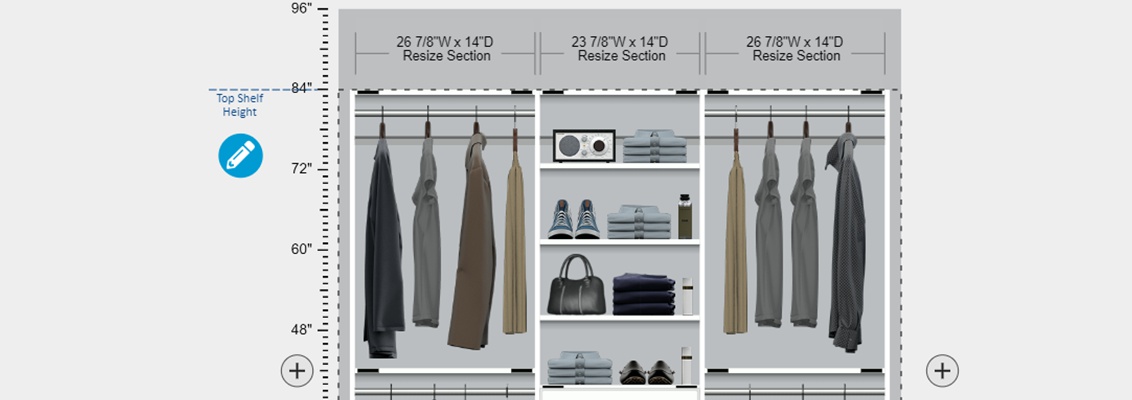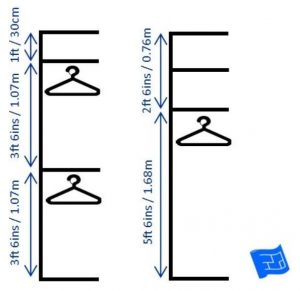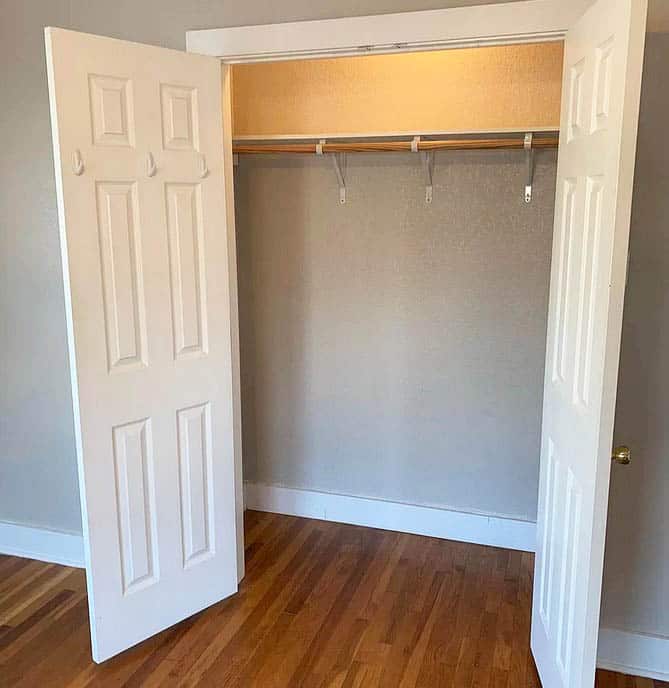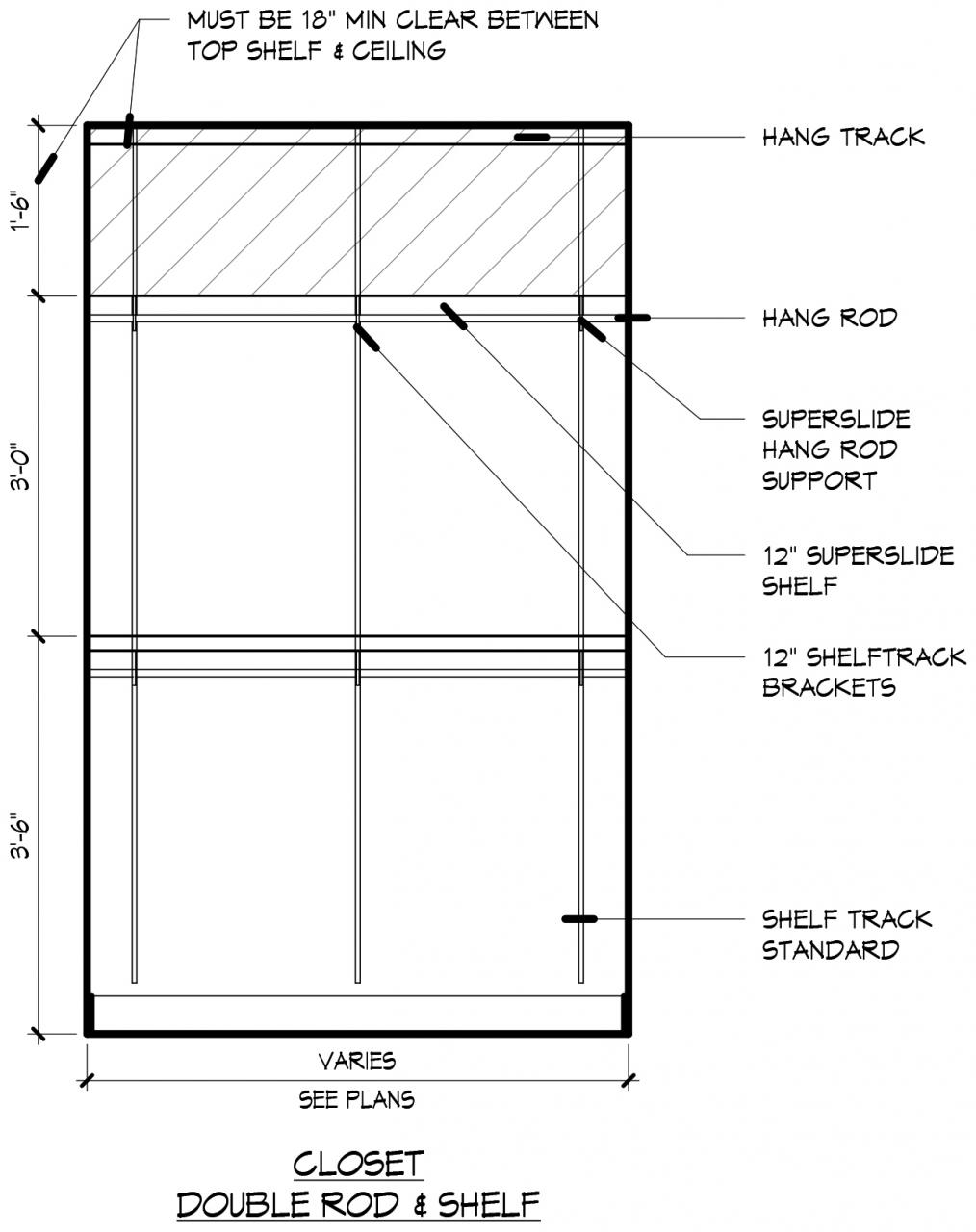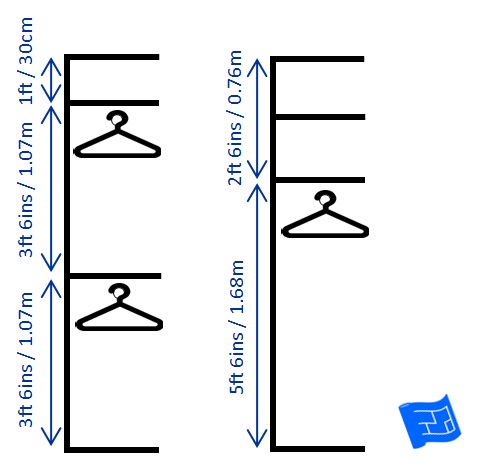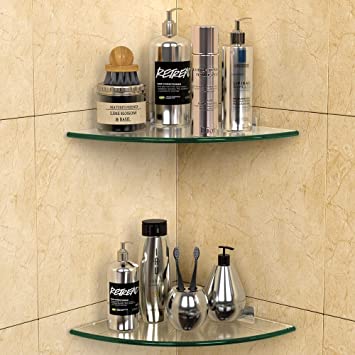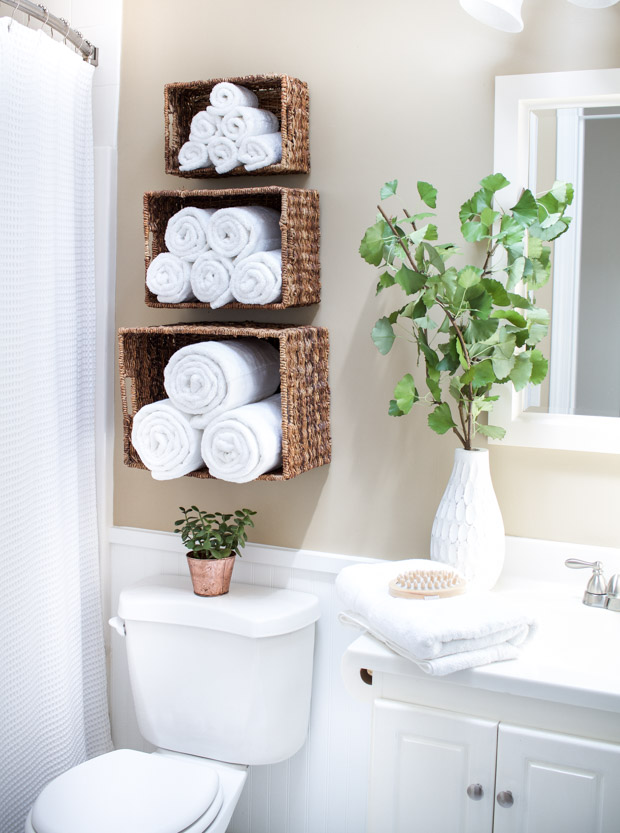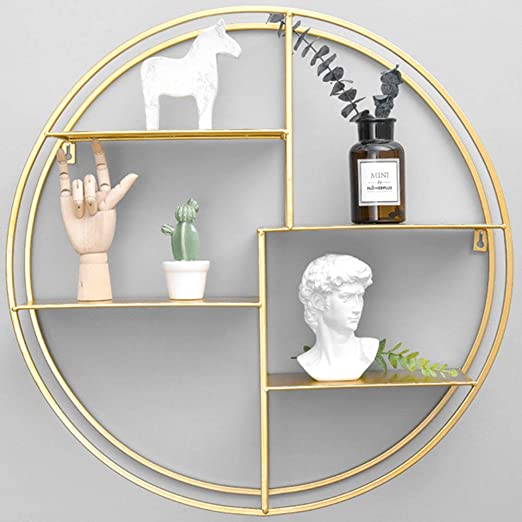Standard Closet Shelf Heights
Closet organization is essential for maintaining a clutter-free living space. Whether you’re a fashion enthusiast with an extensive wardrobe or someone who wants to optimize their storage, understanding the standard closet shelf heights is crucial. By knowing the most common measurements, you can make informed decisions about how to arrange your belongings efficiently. Let’s discuss the various standard closet shelf heights and provide useful tips to help you maximize your closet space.
- Upper Shelf: The upper shelf is typically positioned at the top of the closet, near the ceiling. Its height can vary depending on the dimensions of the closet, but a common standard height is around 72 inches (182 cm) from the floor. This shelf is ideal for storing items that are less frequently used or out-of-season clothes.
- Double-Hanging Shelves: Double hanging shelves are designed to maximize hanging space by utilizing two levels of hanging rods. The top rod is typically placed at a height of 84 inches (213 cm) from the floor, while the bottom rod is positioned at around 42 inches (107 cm) from the floor. This configuration is perfect for hanging shirts, blouses, skirts, and pants.
- Single Hanging Shelf: A single hanging shelf is a standard feature in most closets. It is usually positioned at a height of 66 inches (168 cm) from the floor, making it suitable for hanging dresses, jackets, and longer garments.
- Shoe Shelf: A shoe shelf is an essential component of a well-organized closet. It is typically placed at a height of 12 inches (30 cm) from the floor, providing easy access to your footwear collection. This height allows for efficient shoe storage without taking up too much valuable space.
- Adjustable Shelves: Many closets come with adjustable shelves that allow you to customize the height according to your specific needs. These shelves are versatile and can be positioned at various heights to accommodate different items such as folded clothes, accessories, or storage bins. The adjustable feature makes it easier to adapt your closet as your storage requirements change over time.
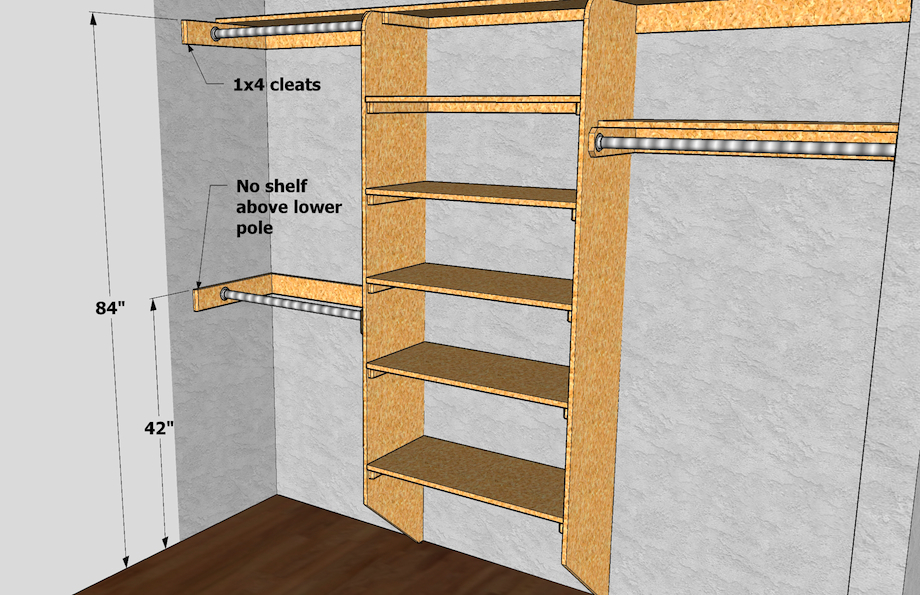
Optimal Heights for Closet Shelves to Maximize Storage
When it comes to closet organization, maximizing space is essential. One often overlooked aspect is the height of closet shelves. By strategically setting the heights of shelves, you can optimize storage and create a more organized and functional space. We will discuss the optimal heights for closet shelves to maximize storage and provide you with practical tips to make the most of your closet.
Assessing Your Storage Needs
Before diving into setting shelf heights, it’s important to assess your storage needs. Start by decluttering your closet and taking stock of your belongings. Determine the types of items you need to store, such as clothing, shoes, accessories, or household items. This will help you prioritize and allocate space accordingly.
Utilizing Vertical Space
Vertical space is often underutilized in closets. By setting shelves at optimal heights, you can take full advantage of this space. Consider installing shelves close to the ceiling for items that are used less frequently, such as seasonal clothing or extra bedding. This will free up lower shelves for everyday items.
Tailoring Heights to Item Sizes
The one-size-fits-all approach doesn’t work when it comes to closet shelves. Different items have varying sizes and require different amounts of vertical space. For example, longer garments like dresses or coats need more hanging space, while folded items like t-shirts or sweaters can be stored on shorter shelves. By tailoring shelf heights to your specific needs, you can create a customized closet solution that maximizes storage.
Grouping Similar Items
Another effective organization tip is to group similar items. This not only makes it easier to find what you need but also helps in determining the ideal shelf heights. For example, dedicate a shelf for shoes and adjust the height accordingly to accommodate different shoe sizes. Similarly, allocate a specific shelf for handbags or accessories and adjust the height based on their dimensions.
Easy Access and Visibility
Setting closet shelves at different heights can also enhance accessibility and visibility. Place frequently used items, such as everyday clothing or shoes, at eye level or within easy reach. This eliminates the need to constantly bend down or reach up for items, making your daily routine more efficient.
Incorporating Adjustable Shelving Systems
For ultimate flexibility, consider incorporating adjustable shelving systems in your closet. These systems allow you to modify shelf heights as your storage needs change. They are especially useful in children’s closets, where the height requirements for clothing and accessories may vary as they grow. Adjustable shelving systems provide versatility and ensure your closet can adapt to your evolving needs.
Customized Closet Solutions: Tailoring Shelf Heights to Your Specific Needs
The key to a well-organized closet lies in customized solutions tailored to your specific needs. One essential aspect of closet customization is setting the right heights for shelves. By considering your unique storage requirements, you can create a closet that perfectly accommodates your belongings. Let’s find out the importance of customized closet solutions and how tailoring shelf heights can make a significant difference in optimizing storage space.
Understanding Your Storage Habits: To begin customizing your closet, it’s crucial to understand your storage habits. Take note of the type of items you frequently use, the ones you rarely touch, and those that require special attention. This assessment will help you determine the ideal shelf heights for each category of items.
Clothing and Hanging Space: When it comes to clothing, individual preferences and wardrobe sizes differ. Some people have more dresses or long coats, while others may have an extensive collection of shirts or trousers. By taking inventory of your clothing and analyzing your hanging needs, you can determine the appropriate heights for adjustable clothing rods or fixed shelves to accommodate your garments.
Shoe Storage: Shoes are another essential consideration in customized closet solutions. The height of shoe shelves should be based on the type and quantity of shoes you own. For example, if you have a lot of high-heeled shoes, you may need taller shelves to prevent them from toppling over. On the other hand, shorter shelves can accommodate flats or sandals more efficiently.
Accessory Organization: Accessories like handbags, belts, or scarves require specialized storage solutions. By tailoring shelf heights to the dimensions of your accessories, you can ensure they are easily accessible and well-organized. Consider installing narrower shelves or incorporating hooks and dividers to maximize space and keep your accessories neatly arranged.
Custom Shelving Systems: Investing in custom shelving systems is a game-changer when it comes to closet customization. These systems allow you to personalize your closet layout, including shelf heights, to match your specific needs. With a custom shelving solution, you have the flexibility to adjust shelf heights as your storage requirements evolve.
Maximizing Efficiency: The ultimate goal of customized closet solutions is to maximize efficiency. By tailoring shelf heights to your specific needs, you eliminate wasted space and ensure everything has a designated place. This not only makes finding items easier but also simplifies the process of putting things back in their proper spots, reducing clutter, and maintaining organization.
Arranging Closet Shelves at Different Heights for Easy Access
An organized closet not only saves time but also makes getting dressed a more enjoyable experience. One effective way to achieve a well-organized closet is by arranging shelves at different heights. By doing so, you can create designated spaces for different categories of items and ensure easy access to everything you need. Here are several practical organization tips to help you arrange closet shelves at different heights for easy access.
Categorize Your Items: Before arranging closet shelves, categorize your items into different groups. Consider categories such as tops, bottoms, dresses, shoes, accessories, or seasonal items. This will allow you to allocate specific shelves for each category and arrange them accordingly.
Prioritize Frequently Used Items: When arranging shelves, prioritize frequently used items by placing them at eye level or within easy reach. This saves time and eliminates the need to constantly bend down or reach up to access everyday essentials. Reserve the easiest-to-reach shelves for items like everyday clothing, shoes, or accessories that you use most often.
Utilize Vertical Space: Make the most of your closet’s vertical space by setting shelves at different heights. Install shelves close to the ceiling for items that are used less frequently, such as out-of-season clothing or extra bedding. This frees up lower shelves for everyday items, ensuring that all available space is utilized efficiently.
Adjust Shelf Heights for Different Item Sizes: To optimize storage, adjust shelf heights according to the sizes of the items you need to store. Longer garments like dresses or coats require more hanging space, while folded items like t-shirts or sweaters can be stored on shorter shelves. By tailoring shelf heights to item sizes, you can ensure that everything fits comfortably and is easily accessible.
Label and Group Similar Items: To maintain organization and simplify finding items, label shelves, and group similar items together. Use tags, labels, or clear storage bins to indicate the contents of each shelf. For example, dedicate a shelf for shoes and label it accordingly. Grouping similar items also helps in determining the height requirements for each shelf.
Flexibility with Adjustable Shelving: Consider using adjustable shelving systems to enhance flexibility in your closet organization. These systems allow you to modify shelf heights as needed, making it easier to accommodate changes in your storage needs over time. Adjustable shelving systems are particularly useful in children’s closets, where the height requirements for clothing and accessories may change as they grow.
Understanding the Psychology Behind Ideal Closet Shelf Heights
The organization of physical spaces, such as closets, can have a profound impact on our mental well-being. The science of storage explores the psychological aspects of organizing and how it affects our daily lives. When it comes to closet shelf heights, understanding the psychology behind ideal heights can help create a more harmonious and efficient space. We will learn the science of storage and the psychology behind setting ideal closet shelf heights.
Visual Perception and Accessibility: The height of closet shelves directly affects our visual perception and accessibility to items. Research suggests that items placed at eye level are perceived as more accessible, whereas those placed too high or too low may seem less reachable. By setting shelves at optimal heights, you can enhance the visual accessibility of items, making it easier to locate and retrieve what you need without straining or feeling overwhelmed.
Cognitive Load and Decision-Making: The organization of closet shelves also plays a role in reducing cognitive load and decision-making. When shelves are set at ideal heights, it becomes easier to categorize and visually process items. This reduces the mental effort required to locate specific items and make decisions about what to wear or use. By minimizing cognitive load, you can save valuable time and energy in your daily routine.
Emotional Well-being and Clutter: Cluttered spaces can harm our emotional well-being. Research has shown that an organized environment promotes a sense of calm and reduces stress levels. By setting ideal shelf heights and creating a clutter-free space, you can create a more peaceful and harmonious atmosphere in your closet. This can positively impact your mood and overall mental well-being.
Personalization and Sense of Ownership: Setting closet shelf heights based on your specific needs and preferences can foster a sense of ownership and personalization. When you have control over the organization of your space, it creates a stronger sense of ownership and attachment. This can lead to increased satisfaction and a greater sense of pride in maintaining an organized closet.
Efficiency and Productivity: Efficiency and productivity are closely linked to the organization of physical spaces. By setting ideal shelf heights, you can create a more efficient system for storing and accessing items. This saves time and energy in your daily routine, allowing you to focus on other important tasks or activities. A well-organized closet with optimized shelf heights can contribute to a more productive lifestyle.
Adaptability and Flexibility: The psychology behind ideal closet shelf heights also emphasizes the importance of adaptability and flexibility. As our storage needs change over time, it’s crucial to have a system that can adapt to these changes. Adjustable shelving systems provide the flexibility to modify shelf heights as needed, ensuring that your closet can evolve along with your changing needs. This adaptability promotes a sense of control and reduces the stress of having to constantly reorganize the space.
Closet Shelving Layout u0026 Design THISisCarpentry
Advanced Features and Design – Adjusting Top Shelf Height
Standard Bedroom Closet Dimensions – A Complete Guide Complete Guide
Closet Rod And Shelf Lafama Co Closet shelves, Simple closet
Closet Height Standards (Rod, Shelf u0026 Door Dimensions) – Designing
STORAGE STYLE: Big Ideas for Small Spaces – RLPS
The Perfect Closet Rod Height, Solved! – Bob Vila
The Perfect Closet Rod Height, Solved! – Bob Vila
Walk in closet dimensions
Related Posts:
